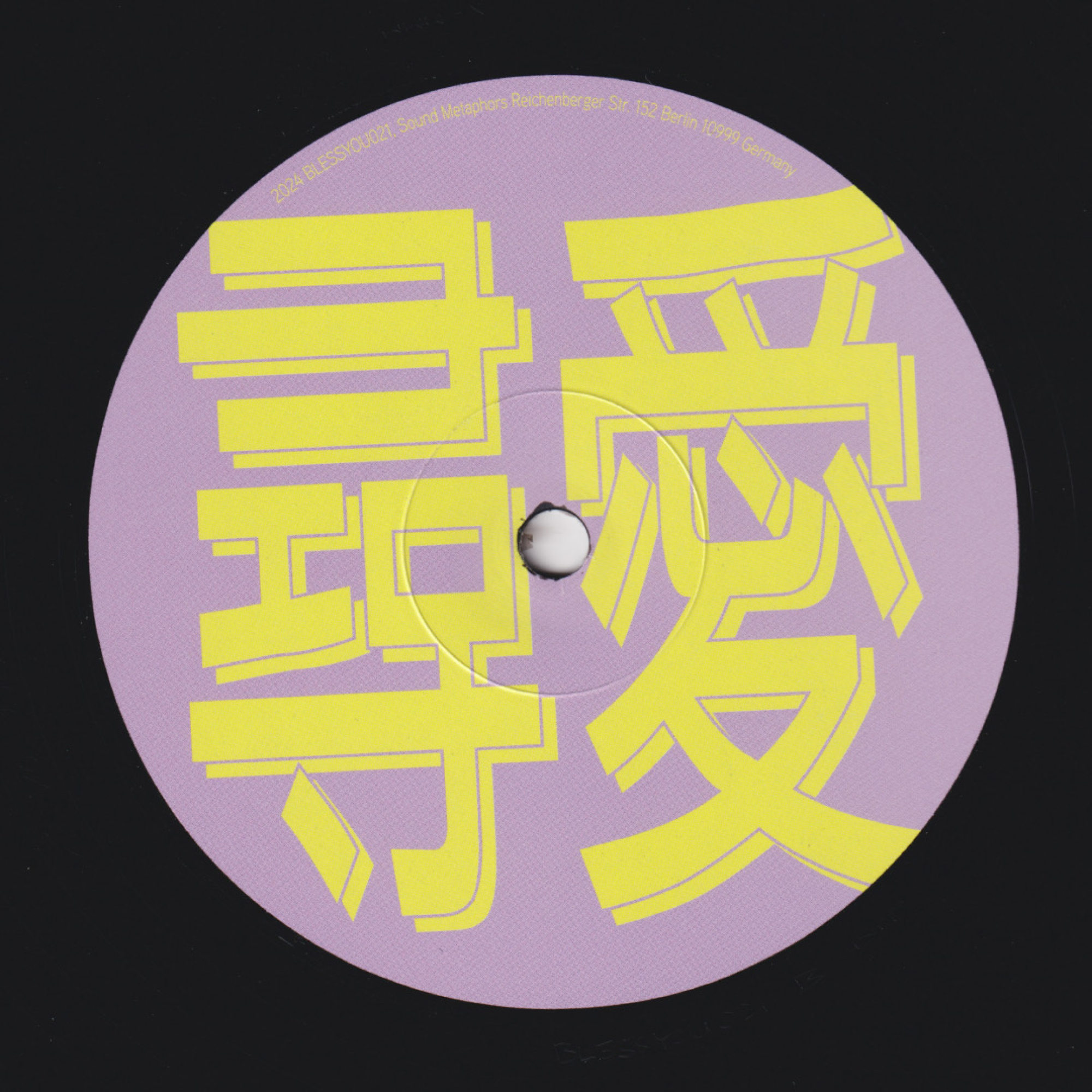
Profile | DJ records covers of Anita Mui song, other Cantopop hits to remind the world of Hong Kong’s musical influence
- Techno DJ Olivia Dawn Mok, aka Xiaolin, is issuing contemporary takes on ‘bedroom pop’ Cantopop classics as a reminder of Hong Kong’s cultural sway in the 1980s
- Limited vinyl pressings of three tracks will be sent to record stores around the globe. The first, a take on an Anita Mui song, has sold out in stores in Japan
Although it was slightly before her time, Olivia Dawn Mok, better known as Xiaolin, has always been nostalgic for 1980s and early 90s Cantopop.
And now the Hong Kong-based techno DJ and producer has initiated a vinyl-only three-part project, titled Moods for Love, to take old Cantonese love songs to a global audience.
“Instead of trying to make techno club tracks in a pandemic,” she says of the Covid-era writing process, “I decided to make things I can listen to at home and feel warm and fuzzy.”

“I wanted to revive that in my own world, so I made these Cantopop covers to show my love for that era. It was the sort of bedroom pop I never expected to release because it was nothing close to the fast, electro stuff I usually make for the club,” says Mok.
Having grown up playing classical violin, Mok holds a bachelor’s degree from the prestigious Juilliard School in New York and a double master’s from the Berklee College of Music’s campus in Valencia, Spain.

However, she says: “I don’t want [attending music school] to be my identity. I’ve seen so many people with no formal music education who are, in many ways, much better musicians than I am.”
Despite having years of experience as a techno DJ, she has only recently realised that “sometimes what you create for yourself can turn out to be the best, because you’re not trying to do something to fit something else. You’re doing it because you want to do it”.
She adds: “Now, I’m glad I was encouraged to put this out, otherwise, I would never have got to share my Hong Kong pride with the world. Hopefully, people outside Hong Kong will become curious about our culture.”
It’s a passion project that we’re not trying to make money out of. It’s our love letter to old Hong Kong.
On April 18, the first of her contemporary Cantopop offerings was launched at Sheung Wan’s Mihn Club with 50 signed copies of Mok’s adaptation of Mui’s 1987 hit “Xin Ai (Searching for Love)”, which was taken from the 1985 city-pop anthem “Plastic Love”, written and produced in 1984 by Japanese power couple Tatsuro Yamashita and Mariya Takeuchi.
The A-side of the record is truer to Cantopop, with Mok’s dreamy vocals covering Mui’s lyrics. The B-side features a more melodic and instrument-centric version of the track, adapted for both karaoke and dance settings, for DJs to mix with beats.
“I’m working on a music video with a very 80s karaoke vibe that is semi-c***py,” she laughs. “I might sit on a rock with the wind in my face or something.”
The second release, her version of Liew’s 1990 hit “Shi Hou (After the Love)”, is set for August. The third is a cover of Tina Liu Tien-lan’s 1987 hit “Ban Ge Meng (Half A Dream)”, which will drop in November.

Available only on vinyl, with an online preview, all three records, released by Berlin-based label Sound Metaphors, will be distributed to music shops around the globe. In Japan, the first release is already sold out at Tokyo’s Lighthouse Records and Disk Union.
While Mok initiated, sang, arranged and produced all the original sounds, she stresses that it is not just her project. “They’re not even songs I wrote, and the project wouldn’t have happened at all without other people, so it didn’t feel right to advocate it as mine.”
She explains that her friend jazz pianist Daniel Chu Siu-kai had provided her with a piano solo when they got together to jam during the pandemic, and sound engineer Eric Lau, who she met in Xiamen on her mainland China tour last year, offered to mix at no cost.
“It’s all about team effort,” she says. “The project isn’t under my name, which you have to look in the small-print credits to find.

She is still working on the third track, but already has the vision of including “as much local talent as possible” to “bring exposure and love” to the Hong Kong scene.
Though details are still to be confirmed, Mok is scheduled to play a rare live Cantopop set at a notorious Berlin nightclub around mid-September. When she returns to Hong Kong, more Moods for Love release events will follow for audiophiles to get their hands on the vinyl records in person with no shipping fees or other additional charges.
“For now,” she says, “we’re only pressing 1,000 copies of each record. It’s a passion project that we’re not trying to make money out of. It’s our love letter to old Hong Kong.”

